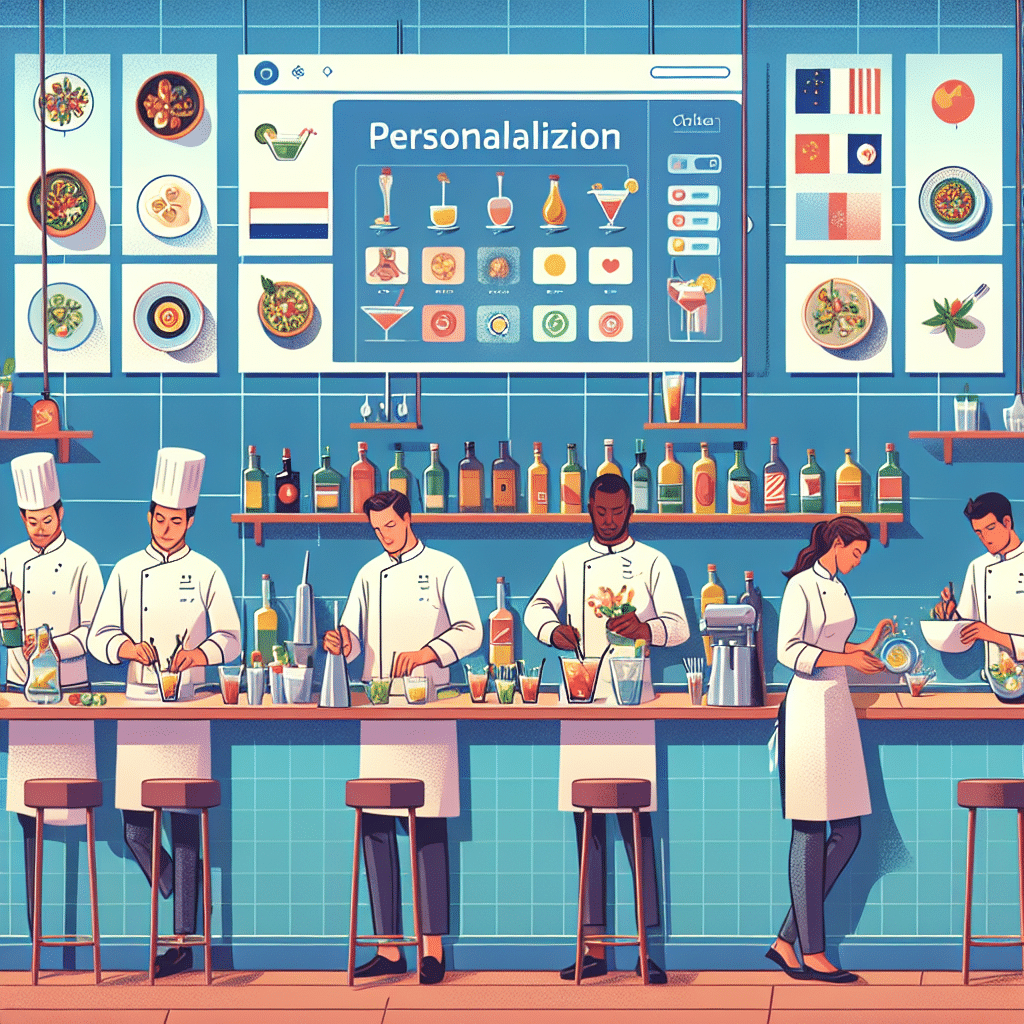How important is personalization to the food industry today?
-
Table of Contents
- Personalization in the Food Industry: A Key Ingredient for Success
- The Rise of Personalized Nutrition
- Customization in Food Service and Retail
- Impact on Consumer Behavior and Expectations
- Technological Innovations Driving Personalization
- Challenges and Considerations
- Conclusion: The Future of Food is Personal
- ETprotein: Catering to Personalized Protein Needs
Personalization in the Food Industry: A Key Ingredient for Success

The food industry has undergone a significant transformation in recent years, with personalization emerging as a central theme in the quest to meet consumer demands. In an era where individual preferences and dietary needs are more diverse than ever, the ability to offer personalized food experiences has become a crucial differentiator for businesses within the sector. This article delves into the importance of personalization in the food industry, exploring its impact on consumer satisfaction, brand loyalty, and market growth.
The Rise of Personalized Nutrition
Personalized nutrition is a trend that tailors dietary recommendations and products to individual health goals, lifestyle choices, and genetic makeup. This approach has gained traction as consumers increasingly seek out food options that align with their unique needs. Here are some compelling reasons why personalized nutrition is reshaping the food industry:
- Health Consciousness: With a growing awareness of the link between diet and health, consumers are looking for foods that can help them maintain a healthy lifestyle.
- Technological Advancements: Advances in technology, such as DNA testing and AI-driven apps, have made it easier for companies to offer personalized dietary advice and products.
- Increased Expectations: Today’s consumers expect more than just a one-size-fits-all approach; they want options that cater specifically to their tastes and nutritional needs.
Customization in Food Service and Retail
Customization is another facet of personalization that has taken the food service and retail sectors by storm. From build-your-own meal kits to customizable menu items at restaurants, the ability to tailor food choices has become a key selling point. Here’s why customization matters:
- Consumer Empowerment: Allowing customers to customize their meals gives them a sense of control and satisfaction, leading to a more positive dining experience.
- Brand Differentiation: Businesses that offer customizable options can stand out in a crowded market, attracting customers who value the ability to personalize their food.
- Adaptability: Customization enables businesses to cater to a wide range of dietary restrictions and preferences, from vegan and gluten-free to keto and paleo diets.
Impact on Consumer Behavior and Expectations
Personalization has a profound impact on consumer behavior and expectations. A study by Deloitte found that 1 in 5 consumers are willing to pay a 20% premium for personalized products or services. In the food industry, this translates to:
- Increased Loyalty: When consumers find a brand that caters to their individual needs, they are more likely to become repeat customers.
- Word-of-Mouth Marketing: Personalized experiences often lead to customers sharing their positive experiences with others, effectively serving as brand ambassadors.
- Higher Expectations: As personalization becomes more common, consumers will increasingly expect food businesses to offer tailored options.
Technological Innovations Driving Personalization
Technology plays a pivotal role in enabling personalization within the food industry. Innovations such as big data analytics, machine learning, and mobile applications allow businesses to understand and cater to individual consumer preferences. For instance:
- Data-Driven Insights: By analyzing customer data, companies can identify trends and preferences, enabling them to create targeted marketing campaigns and product offerings.
- Interactive Platforms: Apps and websites that offer personalized meal planning and nutrition advice help consumers make informed choices about their food.
- On-Demand Production: Advances in manufacturing technology allow for the cost-effective production of customized food products, even in small batches.
Challenges and Considerations
While personalization offers numerous benefits, there are challenges that businesses must navigate. These include:
- Privacy Concerns: Collecting and utilizing customer data for personalization must be done with respect to privacy regulations and consumer trust.
- Complexity and Cost: Developing personalized products can be complex and costly, requiring investment in technology and supply chain adaptations.
- Scalability: Scaling personalized offerings to meet the demands of a larger market can be challenging for businesses, especially smaller ones.
Conclusion: The Future of Food is Personal
The importance of personalization in the food industry cannot be overstated. It has become a key factor in consumer decision-making, with the potential to drive brand loyalty and market growth. As technology continues to evolve, the opportunities for personalized nutrition and customized food experiences will only expand, offering exciting prospects for both consumers and businesses alike. The food industry must embrace personalization as not just a trend, but a fundamental shift in how food is marketed, produced, and consumed.
ETprotein: Catering to Personalized Protein Needs
In line with the trend of personalization, ETprotein offers a range of protein products that cater to the specific needs of individuals and businesses. Whether you’re looking for organic plant-based proteins or high-purity L-(+)-Ergothioneine for various applications, ETprotein has the expertise and product range to support personalized nutrition and product development. Their commitment to quality, non-GMO, and allergen-free ingredients ensures that you can confidently incorporate their proteins into your personalized food offerings.
About ETprotein:
ETprotein, a reputable protein and L-(+)-Ergothioneine (EGT) Chinese factory manufacturer and supplier, is renowned for producing, stocking, exporting, and delivering the highest quality organic bulk vegan proteins and L-(+)-Ergothioneine. They include Organic rice protein, clear rice protein, pea protein, clear pea protein, watermelon seed protein, pumpkin seed protein, sunflower seed protein, mung bean protein, peanut protein, and L-(+)-Ergothioneine EGT Pharmaceutical grade, L-(+)-Ergothioneine EGT food grade, L-(+)-Ergothioneine EGT cosmetic grade, L-(+)-Ergothioneine EGT reference grade and L-(+)-Ergothioneine EGT standard. Their offerings, characterized by a neutral taste, non-GMO, allergen-free attributes, with L-(+)-Ergothioneine purity over 98%, 99%, cater to a diverse range of industries. They serve nutraceutical, pharmaceutical, cosmeceutical, veterinary, as well as food and beverage finished product distributors, traders, and manufacturers across Europe, USA, Canada, Australia, Thailand, Japan, Korea, Brazil, and Chile, among others.
ETprotein specialization includes exporting and delivering tailor-made protein powder and finished nutritional supplements. Their extensive product range covers sectors like Food and Beverage, Sports Nutrition, Weight Management, Dietary Supplements, Health and Wellness Products, and Infant Formula, ensuring comprehensive solutions to meet all your protein needs.
As a trusted company by leading global food and beverage brands and Fortune 500 companies, ETprotein reinforces China’s reputation in the global arena. For more information or to sample their products, please contact them and email sales(at)ETprotein.com today.












